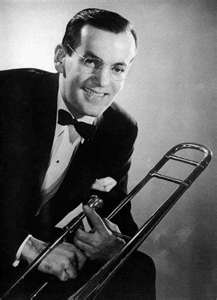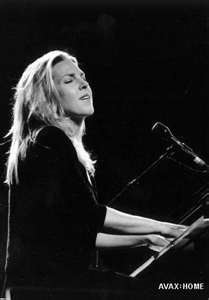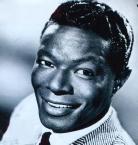Dave Lagadi Music


Michael Buble'

Biography
He got his big break in show business after former Canadian Prime Minister Brian Mulroney discovered his music. At 10 years of struggling, the discovery came at a time when distraught Michael was considering giving up a career in music and getting a job in media. His performance at a corporate gig in summer 2000 impressed Michael McSweeney, speech writer/right hand man to Brian Mulroney, and told Mcsweeney to feel free to use his independent CD as a coaster if he didn't like it. Mcsweeney gave the CD to Brian & Mila Mulroney, which led to an invitation to sing at their daughter's wedding, where he was introduced to music producer David Foster, who took him under his wing.
His self-titled debut album came out February 12, 2003 and has since won several music awards and incredible worldwide success.
Glenn Miller

Glenn Miller
Glenn Miller's reign as the most popular bandleader in the U.S. came relatively late in his career and was relatively brief, lasting only about three and a half years, from the spring of 1939 to the fall of 1942. But during that period he utterly dominated popular music, and over time he has proven the most enduring figure of the swing era, with reissues of his recordings achieving gold record status 40 years after his death. Miller developed a distinctive sound in which a high-pitched clarinet carried the melody, doubled by a saxophone section playing an octave lower, and he used that sound to produce a series of hits that remain definitive examples of swing music. Miller's approach is not much appreciated by jazz fans, who prefer bands that allow for greater improvisation than was found in his highly disciplined, rigorously rehearsed unit. But he brought the swing style of popular music to a level of sophistication and commercial acceptance it had not previously achieved and would not see again after his untimely passing.
Miller was the son of Lewis Elmer and Mattie Lou Cavender Miller. He lived in various locations in the Midwest while he was growing up. He first took up the mandolin, then switched to a horn. In Grant City, MO, where his family moved in 1915, he joined the town band and began playing trombone. By 1918, the family had moved to Fort Morgan, CO, where he played in the high school band and graduated in May 1921. He immediately joined the Boyd Senter band, but quit to start college at the University of Colorado in January 1923. After a year, however, he left college and moved to Los Angeles, where he joined Ben Pollack's band. In the summer of 1928, he left Pollack and settled in New York, where he worked as a session musician and arranger. When in the spring of 1934 Tommy and Jimmy Dorsey formed the Dorsey Brothers Orchestra, he signed on as trombonist and arranger, remaining with the band almost a year. He left to organize an American band for British bandleader Ray Noble that made its debut at the Rainbow Room in New York's Rockefeller Center. Meanwhile, he was studying theory and composition with Joseph Schillinger.
Miller began recording under his own name for Columbia Records on April 25, 1935, using a pickup band containing members of the Noble orchestra. His instrumental "Solo Hop" reached the Top Ten in the summer of 1935. But he did not organize a permanent touring band of his own until 1937, when he signed to Brunswick Records. The group was not a success, and he disbanded it in early 1938, then reorganized a couple of months later and signed to the discount-priced Bluebird subsidiary of RCA Victor Records. Still without any great success, he managed to maintain this orchestra for the next year until he got his big break with an engagement at the Glen Island Casino in New Rochelle, NY, in the summer of 1939. Glen Island was a major swing venue with a radio wire, giving the band extensive exposure. Already, Miller had hit the charts with the Top Ten hit "Sunrise Serenade"; soon, its flipside, "Moonlight Serenade," would become an even bigger hit. "Wishing (Will Make It So)" (vocal by Ray Eberle) hit number one in June. Ultimately, Miller scored 17 Top Ten hits in 1939, including the subsequent chart-toppers "Stairway to the Stars," "Moon Love," "Over the Rainbow," and "Blue Orchids" (all vocals by Ray Eberle), as well as "The Man With the Mandolin" (vocal by Marion Hutton).
Miller's recording success led to other opportunities. He became the star of the three-times-a-week radio series Chesterfield Supper Club in December 1939 and began the first of several extended engagements at the Café Rouge in the Hotel Pennsylvania in New York in January 1940, also appearing occasionally at the Paramount Theatre. He scored 31 Top Ten hits in 1940, more than three times as many as the second most successful recording artist of the year, Tommy Dorsey, hitting number one with "Careless," "When You Wish Upon a Star," "Imagination," "Fools Rush In (Where Angels Fear to Tread)," and "Blueberry Hill" (all vocals by Ray Eberle); "The Woodpecker Song" (vocal by Marion Hutton); and the instrumentals "In the Mood" and "Tuxedo Junction" (both of which were later inducted into the Grammy Hall of Fame).
Miller scored another 11 Top Ten hits in 1941, which was enough to make him the top recording artist for the second year in a row. His number one hits included "Song of the Volga Boatmen," "You and I" (vocal by Ray Eberle), "Chattanooga Choo Choo," from his first film, Sun Valley Serenade (vocals by Tex Beneke and the Modernaires with Paula Kelly), and "Elmer's Tune" (vocals by Ray Eberle and the Modernaires). The story was much the same on the recording front in 1942, 11 Top Ten hits and a third straight ranking as the year's top recording artist, the chart-toppers including "A String of Pearls," "Moonlight Cocktail" (vocals by Ray Eberle and the Modernaires), "Don't Sit Under the Apple Tree (With Anyone Else but Me)," and "(I've Got a Gal In) Kalamazoo" (vocals on the last two by Tex Beneke, Marion Hutton, and the Modernaires). "Kalamazoo" came from Miller's second film, Orchestra Wives.
Yet 1942, the first full year of American participation in World War II, marked the end of Miller's dominance of popular music, since, after months of negotiations, he arranged to receive an officer's commission in the army air force on September 10 and, 17 days later, played his final date with his band, which he then broke up. He organized a service band and began performing at military camps and war-bond rallies while hosting a weekly radio series, Sustain the Wings. Nevertheless, he scored two more Top Ten hits in 1943, including the number one "That Old Black Magic" (vocals by Skip Nelson and the Modernaires). He took his band to Great Britain in June 1944 and continued to perform for the troops and do radio broadcasts. He was preparing to go on to Paris when the plane on which he was traveling disappeared over the English Channel and he died at age 40.
Glenn Miller, an album of 78 rpm records, topped the newly instituted album charts in May 1945 and became the most successful album of the year. The Glenn Miller Orchestra was reconstituted as a ghost band after the war under the direction of Tex Beneke. In October 1947, Glenn Miller Masterpieces, Vol. 2 topped the album charts. Miller was the subject of a partly fictionalized film biography, The Glenn Miller Story, starring James Stewart, in February 1954; a soundtrack album of re-recordings not featuring Miller, released by Decca Records, hit number one in March. RCA Victor countered with the 10" LP Selections from the Glenn Miller Story, which hit number one in May. (The album was reissued as a 12" LP with a modified track selection in 1956 and was certified gold in 1961. In 1962, RCA Victor released Glenn Miller Plays Selections from the Glenn Miller Story and Other Hits, which had an identical track listing to the 1956 Selections from the Glenn Miller Story LP. It went gold in 1968.) The Miller estate, having parted ways with Tex Beneke, hired Ray McKinley, a former member of the Miller band, to organize a new ghost band in 1956, and this Glenn Miller Orchestra continued to record and perform under various leaders from then on. In 1959, RCA Victor released a triple LP of previously unissued performances, For the First Time ..., which earned a Grammy nomination for Best Performance by a Dance Band. Reissues of Miller's original recordings sold well perennially. The double-LP A Memorial 1944-1969, released in October 1969, went gold in 1986; Pure Gold, released in March 1975, went gold in 1984. In 1989, Jive Bunny and the Mastermixers sampled Miller's recording of "In the Mood" on their gold single "Swing the Mood." While RCA Victor remains the primary repository of Miller recordings and continues to reissue them in various configurations, other labels have also come up with airchecks and other stray recordings, making for a large and constantly growing catalog. ~ William Ruhlmann, Rovi
Diana Krall

Diana Krall got her musical education when she was growing up in Nanaimo, British Columbia, from the classical piano lessons she began at age four and in her high school jazz band, but mostly from her father, a stride piano player with an extensive record collection. "I think Dad has every recording Fats Waller ever made," she said, "and I tried to learn them all." Krall attended the Berklee College of Music on a music scholarship in the early '80s, then moved to Los Angeles, where she lived for three years before moving to Toronto. By 1990, she was based in New York, performing with a trio and singing. After releasing her first album on Justin Time Records, Krall was signed to GRP for her second, Only Trust Your Heart and transferred to its Impulse! division for her third, a Nat King Cole Trio tribute album called All for You. Love Scenes followed in 1997, and in late 1998, she issued the seasonal Have Yourself a Merry Little Christmas. When I Look in Your Eyes followed in 1999. Whatever reknown Krall had earned over the years for her work exploded with this album, which became an international best-seller and earned her a Grammy for Best Jazz Vocal Performance. It also was the first jazz album to be nominated for Album of the Year in 25 years. Krall's crossover success followed her as she performed in Lilith Fair the following year ,and her songs cropped up everywhere from episodes of Sex in the City to films like Midnight in the Garden of Good and Evil. In 2001 she released The Look of Love featuring charts by legendary arranger Claus Ogerman best known for working with bossa nova innovator Antonio Carlos Jobim in the '60s. The album topped the Billboard charts and went quintuple platinum in Canada, the first by a Canadian jazz artist to do so. The Look of Love also helped Krall win three Junos in 2002, taking home awards for Artist of the Year, Album of the Year, and Best Vocal Jazz Album of the Year. In 2003, Krall married iconic British rock musician Elvis Costello. A year later, she issued The Girl in the Other Room. Covering a few standards, this album also included original material -- some co-written by Costello -- for the first time in her career. Returning to the large ensemble standards approach of her previous album, Krall released From This Moment On in 2006. In 2009, she teamed once again with The Look of Love arranger Ogerman for the bossa nova-themed Quiet Nights. ~ William Ruhlmann, Rovi
Nat Cole

Nat Cole
For a mild-mannered man whose music was always easy on the ear, Nat King Cole managed to be a figure of considerable controversy during his 30 years as a professional musician. From the late '40s to the mid-'60s, he was a massively successful pop singer who ranked with such contemporaries as Frank Sinatra, Perry Como, and Dean Martin. He shared with those peers a career that encompassed hit records, international touring, radio and television shows, and appearances in films. But unlike them, he had not emerged from a background as a band singer in the swing era. Instead, he had spent a decade as a celebrated jazz pianist, leading his own small group. Oddly, that was one source of controversy. For some reason, there seem to be more jazz critics than fans of traditional pop among music journalists, and Cole's transition from jazz to pop during a period when jazz itself was becoming less popular was seen by them as a betrayal. At the same time, as a prominent African-American entertainer during an era of tumultuous change in social relations among the races in the U.S., he sometimes found himself out of favor with different warring sides. His efforts at integration, which included suing hotels that refused to admit him and moving into a previously all-white neighborhood in Los Angeles, earned the enmity of racists; once, he was even physically attacked on-stage in Alabama. But civil rights activists sometimes criticized him for not doing enough for the cause.
Such controversies do not obscure his real talent as a performer, however. The dismay of jazz fans at his abandonment of jazz must be measured against his accomplishments as a jazz musician. An heir of Earl Hines, whom he studied closely as a child in Chicago, Cole was an influence on such followers as Oscar Peterson. And his trio, emerging in the dying days of the swing era, helped lead the way in small-band jazz. The rage felt by jazz fans as he moved primarily to pop singing is not unlike the anger folk music fans felt when Bob Dylan turned to rock in the mid-'60s; in both cases, it was all the more acute because fans felt one of their leaders, not just another musician, was going over to the enemy. Less well remembered, however, are Cole's accomplishments during and after the transition. His rich, husky voice and careful enunciation, and the warmth, intimacy, and good humor of his approach to singing, allowed him to succeed with both ballads and novelties such that he scored over 100 pop chart singles and more than two dozen chart albums over a period of 20 years, enough to rank him behind only Sinatra as the most successful pop singer of his generation.
Nat King Cole was born Nathaniel Adams Coles on Montgomery, AL, on March 17, 1919. (In his early years of music-making, he dispensed with the "s" at the end of his name.) As a black child born to a poor family in the American South at that time, he did not have a birth certificate; his March 17 birthday was recalled because it was also St. Patrick's Day. He listed conflicting years of birth on legal documents during his life; most sources give the year as 1917. (Biographer Daniel Mark Epstein, for his 1999 book Nat King Cole, consulted the 1920 census to determine that the Coles household had a male infant at that time and confirm the birth year as 1919.) Cole's father was a butcher who aspired to the Baptist ministry, and when Cole was four the family moved to Chicago, where his father eventually succeeded in becoming a preacher.
Like his older brother Eddie, who became a bass player, Cole showed an early interest in music. He was taught piano by his mother as a child and later took lessons. Also like his brother, he turned professional early; by his teens, he was leading a band, called either the Royal Dukes or the Rogues of Rhythm, and he dropped out of high school at 15 to go into music full-time. The following year, Eddie, who had been touring with Noble Sissle's band, returned to Chicago and the brothers organized their own sextet. On July 28, 1936, as Eddie Cole's Swingsters, they recorded two singles for Decca Records, Nat King Cole's recording debut. That fall, they were hired to perform in a revival of the all-black Broadway musical revue Shuffle Along. Unlike his brother, Cole remained with the show when it went on tour, in part because his girlfriend, dancer Nadine Robinson, stayed with it as well. The two married in Michigan on January 27, 1937, even though Cole was only 17 years old. The tour made its way around the country, finally closing in Los Angeles in May. Cole and his wife remained there, living at first with her aunt, while Cole sought employment as a musician. He briefly led a big band, then played solo piano in clubs.
While performing at the Café Century during the summer of 1937, Cole was approached by the manager of the Swanee Inn, who invited him to put together a small band to play in the club. With guitarist Oscar Moore and bassist Wesley Prince, the act debuted that fall, drawing upon the children's nursery rhyme ("Old King Cole was a merry old soul...") for the name the King Cole Swingsters, later simply the King Cole Trio. The group gradually built up a following, with Cole emerging as a singer as well as a pianist. By September 1938, they had begun making radio transcriptions, originally not intended for commercial release, though they have since been issued. In 1939 and 1940, they made occasional recordings for small labels while expanding their live performing to include appearances across the country and radio work. In late 1940 they were contracted by Decca. Their 1941 recording of Cole's composition "That Ain't Right" hit number one on Billboard magazine's Harlem Hit Parade (i.e., R&B) chart on January 30, 1943, Cole's first successful record. By that time, Prince had left the group to work for the war effort, replaced by Johnny Miller.
The King Cole Trio's contract with Decca expired before "That Ain't Right" became a hit. Their next single, "All for You," was recorded for the tiny Excelsior label in October 1942. After its initial release, it was purchased by Capitol Records and reissued. On November 20, 1943, it became the group's second number one hit on the Harlem Hit Parade. It also crossed over to the pop chart. With that, Capitol signed Cole directly. The trio's first Capitol session produced both the Cole composition "Straighten Up and Fly Right," which topped the black chart for the first of ten weeks on April 29, 1944, spent six weeks at the top of the folk (i.e., country) chart, and reached the Top Ten of the pop chart, and "Gee Baby, Ain't I Good to You," which topped the black chart on October 21 and also crossed over to the pop chart.
The trio placed another four titles in the black chart during 1944, and Capitol released its debut album, The King Cole Trio (catalog number BD-8) that fall. The collection of four 78 rpm discs contained eight tracks, only three of them featuring Cole vocals. When Billboard instituted its first album chart on March 24, 1945, The King Cole Trio was ranked at number one, a position it held for 12 weeks. At the same time, big-band swing music was declining in popularity, and many jazz fans were beginning to turn to the emerging style of bebop, a development that, whatever its artistic significance, spelled the end of jazz as a broadly popular style of music.
The King Cole Trio -- and particularly the singer/pianist then known as "King Cole" -- on the other hand, was going in exactly the opposite direction, as its success on records and at clubs and theaters around the country led to appearances in films and on radio. After numerous guest-star stints on Bing Crosby's Kraft Music Hall radio series, the trio, along with pianist Eddy Duchin, was hired to host the show's summer replacement program for 13 weeks beginning May 16, 1946. During that run, on August 17, The King Cole Trio, Vol. 2 (Capitol BD-29), another set of four 78s, hit number one. Over the next five days, the trio recorded two songs that would add to their pop success. Mel Tormé and Robert Wells' "The Christmas Song (Merry Christmas to You)" (better known by its opening line, "Chestnuts roasting on an open fire"), recorded August 19, was Cole's first disc to feature strings. "(I Love You) For Sentimental Reasons," though it only featured the trio, demonstrated that Cole was more than capable of handling a straight romantic ballad, not just the uptempo novelties with which he and the group had succeeded up until this point.
"(I Love You) For Sentimental Reasons" became Cole's first number one pop single on December 28, 1946; "The Christmas Song (Merry Christmas to You)" peaked at number three, going on to become a holiday perennial and million seller. While these hits were developing, the trio went from its summer replacement berth to its own network radio series, King Cole Trio Time, a 15-minute Saturday afternoon program that debuted on October 19, 1946, and ran until April 1948. The group's recording schedule during the first half of 1947 was relatively light, but the pace picked up considerably starting in August, in anticipation of the musicians' strike called for January 1, 1948. On August 22, 1947, with an orchestral backing, Cole recorded "Nature Boy," an unusual philosophical ballad. Released March 29, 1948, and credited to "King Cole," it hit number one for the first of eight weeks on May 8, becoming a gold record.
Oscar Moore, the trio's original guitarist, left the group in October 1947 after ten years and was replaced by Irving Ashby. In March 1948, Cole divorced his wife and married singer Marie Ellington. Among the couple's children was Natalie Cole, who became a singer. Bass player Johnny Miller quit the trio in August 1948 and was replaced by Joe Comfort. In February 1949, Cole added percussionist Jack Costanzo to the group, which thereafter was billed as "Nat 'King' Cole & the Trio." As of the spring of 1950, Cole's recordings were being credited simply to "Nat 'King' Cole." On July 8 of that year, his recording of the wistful movie theme "Mona Lisa," featuring a string chart arranged by Nelson Riddle, became Cole's third number one pop hit and gold record.
That September, he traveled to Europe for his first international tour, beginning a pattern that would find him giving concerts almost continually in a combination of top nightclubs in major cities and concert halls around the U.S., with occasional trips to Europe, the Far East, and Latin America and extended stays at Las Vegas casinos. In these appearances, he stood for most of the show, only occasional sitting down to play a number or two at the piano. Ashby and Comfort left in 1951, and an announcement was made that the trio was officially dissolved, but that simply meant that Cole henceforth would be billed as a solo act. In practice, he continued to carry a guitarist, John Collins, and a bassist, Charles Harris, along with Costanzo (until he left in 1953 and was replaced by drummer Lee Young), while often augmenting them with an orchestra.
Cole scored his fourth number one pop hit and gold record with "Too Young," which topped the charts on June 23, 1951. His recording of "Unforgettable" peaked at only number 12 on February 2, 1952, but it went on to become one of his better remembered recordings; in 1991, a version of the song by Natalie Cole with the Nat King Cole recording dubbed onto it became a gold record and won the Grammy Award for Record of the Year. With his 1952 LP Penthouse Serenade, Cole showed that he was not yet ready to dispense with his jazz chops entirely. The disc was an instrumental collection that spent one week at number ten in the album chart in October. Meanwhile, he was also looking for new challenges, taking on small acting roles in the films The Blue Gardenia and Small Town Girl and the television drama Song for a Banjo in 1953. His 1953 album Nat King Cole Sings for Two in Love, arranged and conducted by Nelson Riddle, was a Top Ten hit in early 1954 that predated similar "concept" albums by Frank Sinatra.
Although Cole did not score a number one hit in 1953 ("Pretend" peaked at number two), his seven chart entries were enough to rank him among the ten most successful singles artists of the year. His five chart singles in 1954, among them the gold-selling Top Ten hit "Answer Me, My Love," allowed him to repeat this ranking the following year, and he did the same thing in 1955 with another eight chart entries, including the Top Ten hits "Darling Je Vous Aime Beaucoup," "A Blossom Fell," and "If I May." Nine more chart entries allowed him to stay among the most successful singles artists in 1956, even though none of them reached the Top Ten, and he maintained his rank for the fifth straight year in 1957, reaching the Top Ten (and the top of the R&B chart) with "Send for Me." Though he managed one more Top Ten hit, "Looking Back," in 1958, the rise of rock & roll diminished his success on the singles chart. Meanwhile, he returned to a jazz approach on his 1957 LP After Midnight, which paired his backup group with jazz musicians Harry "Sweets" Edison, Stuff Smith, Willie Smith, and Juan Tizol. It was a modest commercial success, quickly followed by the ballad album Love Is the Thing, arranged and conducted byGordon Jenkins, which hit number one for the first of eight weeks on May 27, 1957, and eventually was certified platinum.
Meanwhile, in the fall of 1956, Cole became the first African-American host of a network television series when The Nat "King" Cole Show debuted as a 15-minute weekly program on November 5. The show was expanded to a half-hour in July 1957 and ran until December of that year, though it never attracted a national sponsor that might have made it an ongoing success. Cole attributed advertisers' reticence to racism. He returned to his acting career during 1957, appearing in Istanbul and China Gate, and got his most substantial role in 1958 playing blues musician W.C. Handy in a film biography, St. Louis Blues. His last acting role came in Night of the Quarter Moon in 1959. In 1960, he turned his attention to the theater, putting together a musical revue intended for Broadway. The songs were by Dotty Wayne and Ray Rasch, and the album Cole made of them, Wild Is Love, became his first Top Ten LP in three years. The corresponding stage show, I'm With You, was not as successful, opening what was intended to be a pre-Broadway tour in Denver on October 17, 1960, but closing in Detroit on November 26. Cole, however, salvaged the concept of the show for a stage production he called Sights and Sounds: The Merry World of Nat King Cole, featuring a group of dancers and singers, with which he toured regularly from 1961 to 1964.
Cole returned to the Top Ten of the singles chart for the first time in four years with the country-tinged "Ramblin' Rose" in 1962; his album of the same name also reached the Top Ten and eventually was certified platinum. "Those Lazy-Hazy-Crazy Days of Summer" became his last Top Ten hit in the summer of 1963. In December 1964, he was diagnosed with lung cancer. Two months later, he died of it at the age of 45.
After his death, Cole continued to appeal to the two almost mutually exclusive audiences that had appreciated him during his life. Jazz fans continued to treasure his recordings of the 1930s and 1940s and to dismiss the non-jazz recordings he had made later. (In 1994, German discographer Klaus Teubig compiled Straighten Up and Fly Right: A Chronology and Discography of Nat "King" Cole, which pointedly cut off in the early '50s.) Pop fans clamored for reissues of Cole's 1950s and '60s music, awarding gold record status to compilations that Capitol continued to assemble, without much worrying about the singer's talent as a piano player. (And, as his recordings fell into the public domain in Europe, where there is a 50-year copyright limit, a spate of low-quality reissues assumed flood levels.) But the ongoing debate was only testament to Cole's ongoing attraction for music lovers, which, in the decades following his untimely end, showed no signs of abating.